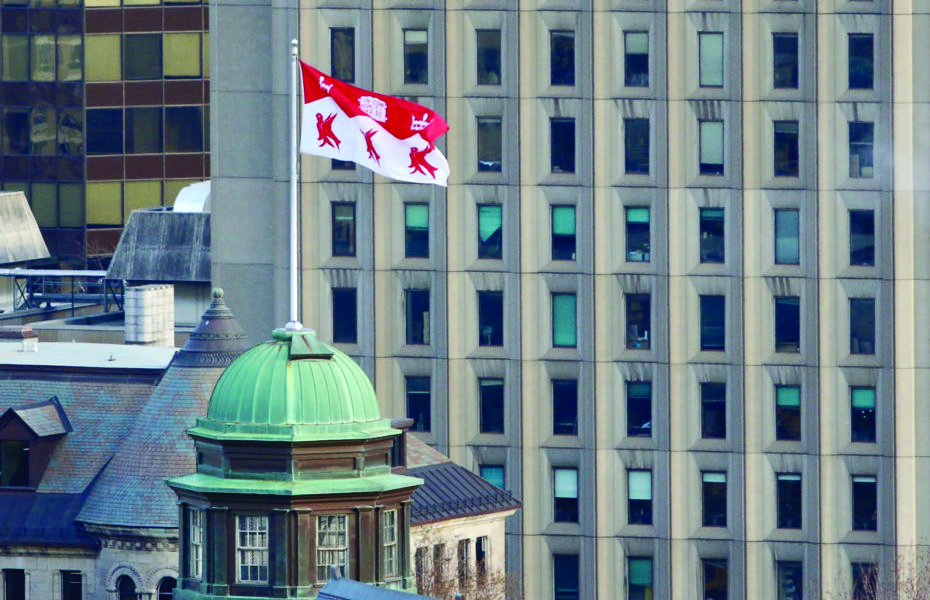McGill’s Office for First Nation and Inuit Education (OFNIE), nested under the Department of Integrated Studies in Education and part of the university’s Faculty of Education, has been in operation since 1975. In the decades since its inception, the office has amassed partnerships with five different Indigenous education organizations across Quebec: The Cree School Board, Kativik Ilisarniliriniq, the Listuguj Education Training and Employment Directorate, the Kahnawà:ke Education Centre, and the Naskapi Education Committee. Currently, the office provides six in-community post-secondary programs, including certificates in education, Indigenous language and culture, and Bachelors of Education degrees.
Assistant director Jim Howden remarked that despite its age, it is often underappreciated at McGill.
“We are probably one of the best-kept secrets here at McGill,” said Howden.
What are the office’s current priorities?
The office is always working to improve its current programs as well as expand them to other communities and more students. In an interview with The McGill Tribune, Howden noted that the Listuguj Education Training and Employee Directorate had its first graduating class in the Bachelor of Education First Nations and Inuit program in 2020. The four-year program graduated 15 students. Its success influenced the Kahnawà:ke Education Centre to create a similar program with OFNIE for their students. These programs, Howden explained, are useful in providing a path for Indigenous people to become educators in their own communities.
“And that’s a truly remarkable feat,” said Howden. “Because, it’s creating Indigenous teachers for Indigenous children in Indigenous communities, and so there’s less need for non-Indigenous teachers like myself.”
Greta Cheechoo, director of education services at the Cree School Board and graduate of two programs partnered with OFNIE, spoke to the Tribune about the value of offering Bachelor of Education programs.
“The programs help the communities to have [many] qualified and competent teachers to teach in our schools,” said Cheechoo.
What do OFNIE partnerships bring to Indigenous communities?
Many of the students pursuing Bachelors of Education or education certificates with OFNIE are adult learners going back to school. Bethany Douglas, a post-secondary counsellor for the Kahnawà:ke Education Centre, explained the significance of having in-community education opportunities as opposed to programs offered on a university campus. For Douglas, the urgency, uniqueness, and usefulness of the partnership with McGill allows these groups to offer the degrees in their students’ communities.
“Our cohort is made up of primarily mature learners, adult students who are returning to school after being out of the school system for a few years. Many have families of their own and have been working in the field of education already for a number of years,” said Douglas. “It would be impossible for most, if not all, our students, to leave full-time jobs to attend post-secondary full time. Our program is in-community, with community instructors as much as possible, so our students have access to a unique program that isn’t found on any [other] campus.”
OFNIE meets annually with a steering committee that provides feedback and guides the office in course delivery and successful programming. Howden emphasized that the partnership between McGill and the associated education organizations is collaborative.
“We co-create,” said Howden. “We don’t parachute in with the BA program [….] It truly is a discussion working through and creating new courses.”
What role do Indigenous leaders take in these partnered degrees?
While the number varies depending on the partnership, many of OFNIE’s program instructors are Indigenous. Howden spoke to the importance of highlighting Indigenous knowledge and leadership in course delivery.
“There’s a lot more Indigenous knowledge that is brought in, there’s a lot more of the beliefs and values of the community,” said Howden. “We work with the communities, scholars, knowledge holders, and elders in some situations where they deliver the course. We encourage and welcome the McGill presence at every step of the way. But we also favour the Indigenous instructors that know the culture that know the programs that know the children.”










